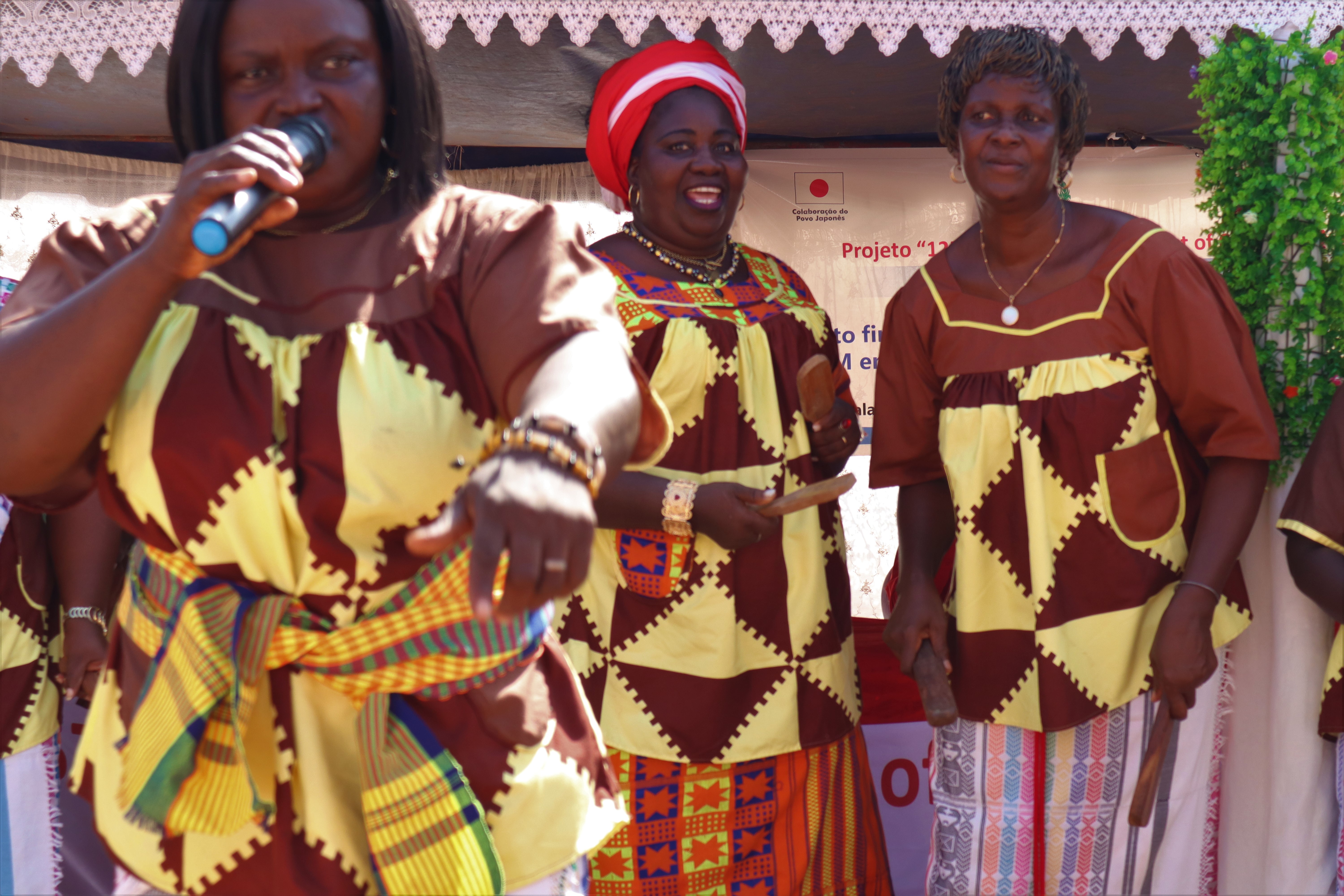The Cycle That Does Not End
December 11, 2022
Closing event for the blue economy project in Cumura
Projects do not always begin when they start and do not always end when they finish. They are processes in continuity, and this is also the case for our project "Blue Economy as a Catalyst for Green Recovery": it is nearing completion and the interventions that have been making it real over the months are also coming to an end. However, this is not the end of the cycle. A new phase now begins to analyse the impacts and the lessons learned so that future interventions can do more and better.
The creation of effective mechanisms to promote the improvement of the living conditions of vulnerable people through income-generating activities is at the core of two of these now closed interventions: "Limiting the Impact of COVID-19. A 3x6 Approach" and “Beyond barriers: income generating activities for the inclusion of vulnerable people in the Cumura area”. Entrepreneurship has been the way to make it possible in both cases. “Entrepreneurship is about using creativity to find solutions that improve people's lives," said UNDP’s Resident Representative Tjark Egenhoff at the closing event of the 3x6 project. Funded by the government of Japan and implemented by ENGIM Guinea-Bissau, this intervention contributed to the creation of 300 new businesses in the capital city Bissau and the improvement of the financial inclusion of the residents of Plubá, a neighbourhood heavily affected by the pandemic. “The project has improved my life in a wonderful way: I have my own company now and I think my future is already guaranteed. Having my own company will help me to be financially independent”, participant Leticia Fernando Obna says. Pending data for this year 2022, these 300 new businesses in Plubá alone account for almost half of the total enterprises created in the country in 2021, when 636 ventures were formalised.

Closing event for the blue economy project in Plubá
In the case of the Cumura project, social inclusion of people with disabilities has been another driving force. In fact, it has been a pilot project implemented by AIFO in partnership with the Federation of Associations of People with Disabilities (Federação das Associações Pessoas com Defeciência – FADPD/GB) and the Cumura Hospital, with UNDP funding. Income-generating activities in the blue economy sector as an engine for economic independence have led to the formalisation of 12 micro-enterprises that have changed the lives of many families in the locality. “If the funding had been a loan, two of the businesses would have been able to repay the money within five months of activity. This demonstrates the viability, and that inclusion is not a barrier but a solution”, explains Samoel Simão from AIFO. With the opening of 11 new bank accounts, financial inclusion has also been a workhorse during the implementation of this intervention. “It is possible to believe because we see that there are opportunities. We are all responsible for our own inclusion”, says UNDP’s Social Inclusion Focal Point Ana Turé. FADPD-GB shares this view, and its president Lázaro Barbosa claims for "inclusion, but with autonomy. We need to empower people because if we don't, we are not including them".
When asked for the word that would sum up the projects they have been an active part of, the new entrepreneurs both from Plubá and Cumura do not hesitate and terms such as gratitude and happiness are quick to appear. The positive results are evident and there are many explanations. "Many women who did not work before are now able to support their families”, says the representative of the Association of Women Vendors Mamadú Aliu. Happiness, joy, and success are other recurring words. "I am grateful that the blue economy helps me to have a normal life", shares the president of the Deaf Women's Co-operative, Nanina da Silva. The success of "seeing the fruits" of their labour is what makes Jean Sonco of the GRUJOTEF group proud, pointing to the stall with the products they produce.
Closing event for the blue economy project in Cumura
A total of 312 new enterprises in both projects, 5 months of weekly and bi-weekly mentoring in Cumura, 2 common spaces rehabilitated through community work in Plubá, 1,000 people participating in social inclusion awareness-raising djumbais in the Biombo region and 20 total days of business management training are not just numbers. They are the result of months of effort and the manifestation of a transformative process that is already improving the living conditions of individuals and families in several communities in Guinea-Bissau. The cycle that began months ago continues now with the work for the sustainability of the interventions, accompanying these people and families to leave no one behind.

 Locations
Locations